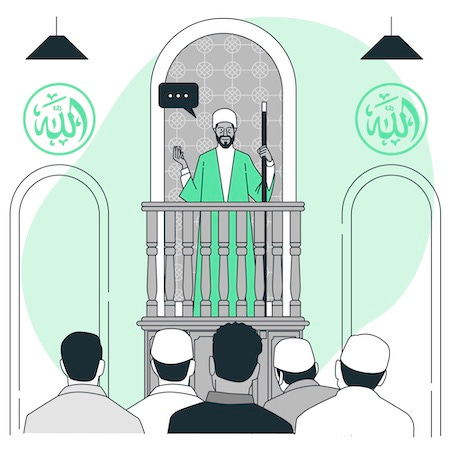According to the Merriam-Webster Dictionary, a fatwa is:
“a legal opinion or decree handed down by an Islamic religious leader.”
At first glance, that seems harmless—after all, a legal opinion can be challenged. However, while this is theoretically possible under Islamic law, the reality is often very different. In some contexts, particularly under regimes like Iran’s, a fatwa can amount to a death sentence for its target.
This was the case with author Salman Rushdie. In 1989, Ayatollah Khomeini issued a fatwa calling for Rushdie’s execution following the publication of The Satanic Verses. The novel blends narratives of modern London with surreal dream sequences, one of which controversially portrays aspects of the Prophet Muhammad’s life and includes references to the disputed “satanic verses”—a debated episode in Islamic tradition. Though the book explores themes of identity, exile, and transformation, it was perceived as a critique of Islam and triggered violent reactions.
Rushdie was not alone. Others have faced similar threats: Ayaan Hirsi Ali for condemning Islam’s treatment of women, including female genital mutilation; filmmaker Theo van Gogh, who collaborated with Hirsi Ali and was murdered in broad daylight in Amsterdam; and Bangladeshi writer Taslima Nasrin, who has long criticized Islamic fundamentalism. Both Hirsi Ali and Nasrin were forced to flee their countries and live under constant security protection which is very costly.
Rushdie himself narrowly survived a brutal knife attack in 2022, losing an eye. In these extreme cases, a fatwa is more than just a religious opinion—it is a sanction for violence.
But what about the West? Have we seen modern-day fatwas—metaphorical or otherwise—against those who challenge prevailing orthodoxy?
I thought of this after hearing Dr. Andrew Wakefield, a British gastroenterologist, speak during a VSRF (Vaccine Safety Research Foundation) webinar. Years ago, he raised concerns about a possible link between the MMR vaccine and autism. For that, he was viciously attacked and lost his medical license. His Wikipedia page brands him as a “British fraudster”—yet many argue the real fraud lies within certain government agencies, such as the CDC.
Other physicians like Dr. Ryan Cole and Dr. Peter McCullough have faced similar vilification, despite their sterling credentials. McCullough, for instance, is one of the most cited cardiologists in the world and has served as editor of several prominent medical journals. He has testified before multiple U.S. Senate committees—but none of that seems to matter when medical “thought police” demand conformity. Independent thinking is punished.
As a chiropractor, I’ve experienced this pattern firsthand. The medical establishment didn’t just target individual chiropractors; it attempted to eliminate the entire profession for much of the 20th century.
Take the case of Mack and Kitty Scallon, a husband-and-wife team who graduated from Palmer College and practiced in Manhattan for over 25 years. In 1949, they were arrested for "practicing medicine without a license"—a common tactic used to harass chiropractors. Yet they never claimed to be practicing medicine; they were practicing chiropractic, a distinct profession. The broader strategy was clear: organized medicine lobbied legislators to block chiropractic licensure across various states, aiming to delegitimize the field entirely.
History is replete with examples of visionaries who were attacked for challenging dominant paradigms—Galileo Galilei and Nikola Tesla among them. Galileo, an astronomer was condemned by the Catholic Church for proposing that the Earth revolves around the sun. He spent the last years of his life under house arrest. Tesla, who revolutionized electrical transmission with alternating current, was discredited and marginalized by rivals like Thomas Edison. Though ultimately vindicated, Tesla died impoverished and largely forgotten.
We recoil at the notion that someone can be marked for death by religious extremists simply for expressing a view. And yet, in the West, we tolerate the destruction of careers, reputations, and lives through institutional mechanisms that serve a similar function—silencing dissent, often at great personal cost.
These are not fatwas in the traditional sense, but they can inflict comparable damage—through censorship, deplatforming, loss of livelihood, and relentless public shaming. In a free society, this should not be tolerated. Suppression of independent thought, whether by religious decree or institutional orthodoxy, is a threat to progress and liberty alike.




You'are so on target once again Ely. My challenge is getting people to openly discuss issues. Most just want to ignore what is happening. xxj
You make a great point, Ely. Sticking up for morality can lead to financial hardship, reduced income, financial ruin or even death, especially in environments where immorality and unethical practices are running rife and rewarded. It makes me wonder - is ethical compromise a necessary condition for earning a high salary? I’ve been reflecting on why many well-paid professionals - such as medical doctors, politicians, judges, lawyers (sometimes cynically called “liars”), financiers, bankers, pharmacists, military arms dealers, drug and human traffickers, real estate agents, and certain other groups—seem to rely heavily on fraudulent or at least ethically questionable practices to generate their substantial incomes. Their often "pornographic" earnings appear to come at the cost of others’ suffering. In contrast, why do poorer paying occupations tend to avoid engaging in fraudulent, unlawful, or unethical behaviours? Might moral adherence invariably lead to financial ruin? Could it be that high-income environments inherently tolerate, encourage, require or even demand degrees of moral compromise or complete moral bankruptcy? It certainly looks that way!